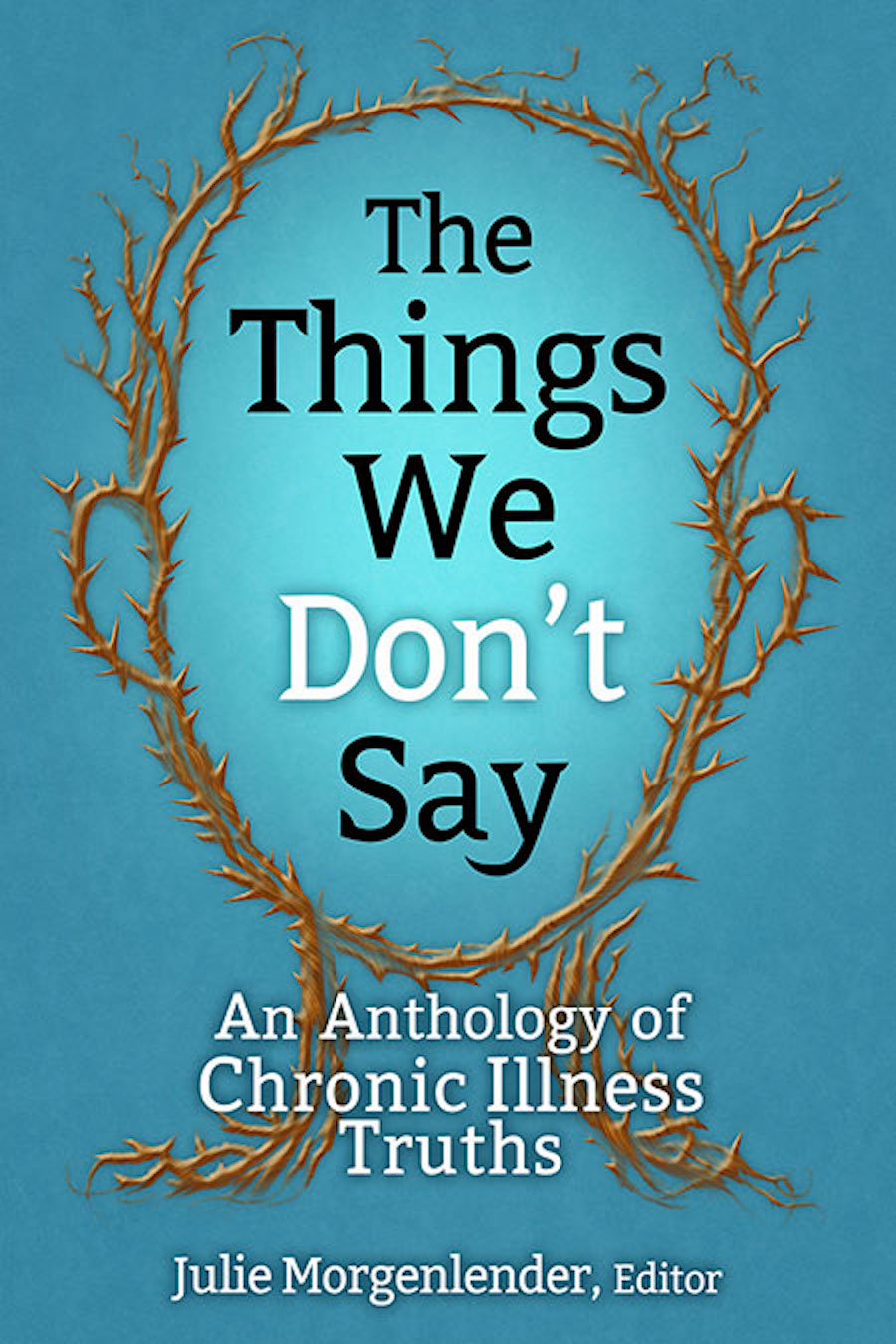By Robyn Ochs
Julie Morgenlender is editor of The Things We Don’t Say: An Anthology of Chronic Illness Truths, a new collection of 50 true stories by 42 authors from around the world. Spanning different ages, ethnicities, genders, sexual orientations, and diagnoses, these authors open up about their chronic illnesses and their search for answers, poor treatment by doctors, self-doubt, warmth and support from family and friends, the triumph of learning coping mechanisms, and more. These stories are honest, raw, and real. They provide comfort and companionship for those with chronic illness, and guidance and understanding for those whose loved ones have chronic illness.” I had the pleasure of interviewing Julie shortly after her book release.
RO: Julie, you’ve been involved in the Boston bi+ community for quite some time. In fact, you are VERY involved.
JM: Yes, I am! I attend BBWN brunches, volunteer with BWQ mailings, and serve on the Bisexual Resource Center’s board of directors. I’m also an advocate for those with chronic illness. I volunteer with a chronic pain support group, write about chronic illness both under a pseudonym and under my own name, and work to raise awareness.
RO: Do you see a connection between these issues?
JM: Both groups are often invisible, often marginalized, and in need of community and support. I have found comfort in building connections, and editing this anthology provided an opportunity to share that feeling of connection with others who have chronic illness.
Finding my chronic illness community was a lot like finding my bisexual+ community: I finally felt like I fit in, and I enjoyed being around people who spoke the same language. There was no need to explain chronic fatigue or “painsomnia,” just as in the bi+ community I didn’t have to watch my pronouns. My first visit to a chronic pain support group felt as revelatory as my first BBWN (Boston Bisexual Women’s Network) brunch a decade ago.
RO: What motivated you to put together this anthology? Where did you get the idea?
JM: There was no specific moment where lightning struck. This was an idea that evolved slowly over many years. The more I was involved in the chronic illness community, the more I saw the loneliness, isolation, and self-doubt there and I knew it was important to bring these stories together so that others would feel the community and support that I had come to appreciate. I also saw how much we benefited when we shared our experiences and advice, and I wanted others to get that benefit. Plus, I wanted those without chronic illness to understand what their loved ones, co-workers, and acquaintances are living with.
As I spoke more openly about my own chronic illness experiences, people I hardly knew began to thank me for showing them what I lived with, saying that they now better understood what people in their lives were experiencing. I wanted to share that on a bigger scale, but my experience is only one of many. I wanted more experiences to be represented so that more people would feel connected, which is why I created this as an anthology.
RO: I had the pleasure of joining you at your book release event on Zoom. What were highlights of this event for you?
JM: The biggest highlight was seeing all of the friendly faces there. After all, this is all about people. Attendees included close friends, relatives, people who I had met virtually through my work on this book, and people I didn’t know at all, plus even more of the book’s contributing authors than I had expected. Another highlight was hearing from so many people afterwards that they learned a lot about chronic illness. Knowing that even that small event was educational felt really good. And I loved the connections that everyone made. Multiple people told me later that they loved hearing the different accents of attendees, that it made the universality of our conditions that much more apparent. Two of the contributing authors realized that they live near one another and now hope to meet up after the pandemic eases.
A special new project came out of the event, too. One attendee mentioned previous experience hosting support groups, and throughout the rest of the party, people asked how they could join the support group, even though it didn’t actually exist! Within two weeks, though, that attendee had decided to host the group, I had shared the news with my email list, folks had signed up, and she had hosted the first meeting. I am so happy that I was able to accidentally bring these folks together so that they can now have this group which, I hope, will be beneficial to them all.
Anyone who’s interested can hear the recording and read the transcript from the party at chronicillnesstruths.com/launchparty
RO: Where can interested folks find your book?
JM: Visit chronicillnesstruths.com to find links to buy the book or search for The Things We Don’t Say: An Anthology of Chronic Illness Truths on Amazon. On the book’s website you can also check out the glossary to see what illnesses and other topics are covered in the book, learn about all of the contributing authors, and more.
Robyn Ochs is editor of Bi Women Quarterly and two anthologies: RECOGNIZE: The Voices of Bisexual Men and the 42-country anthology Getting Bi: Voices of Bisexuals Around the World.

